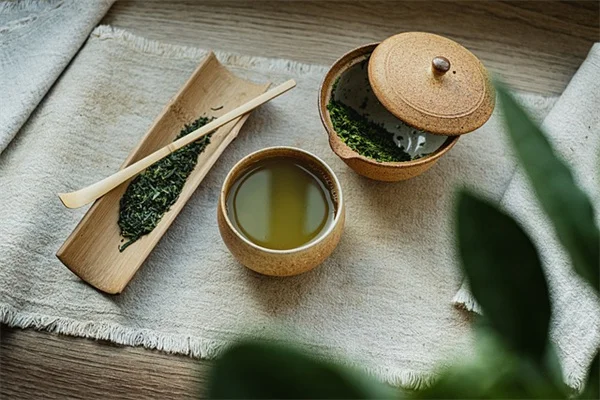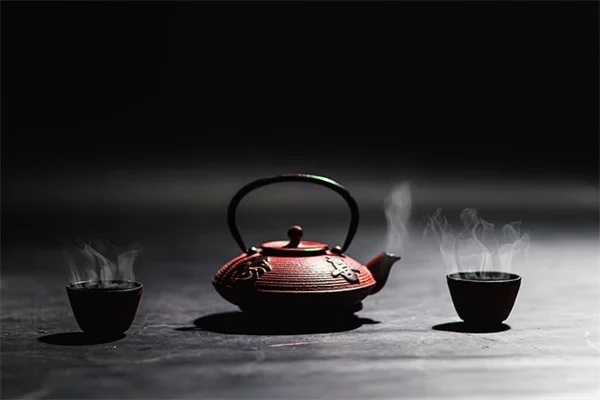Do postmenopausal women need stronger heart protection than men? The answer is a resounding yes! New research shows women with hardened arteries face 50% higher heart attack risks compared to men with similar health conditions. Here's why this matters to you: after menopause, your arteries become more vulnerable because they're naturally narrower than men's, and you lose estrogen's protective effects. But don't worry - I'll walk you through exactly what this means for your health and how you can protect yourself starting today.As someone who's worked in women's health education for years, I was shocked to learn that identical plaque buildup causes 30% more obstruction in women's arteries. It's like trying to drink a thick milkshake through a skinny straw versus a wide one! The good news? Researchers found that adjusting treatment intensity - like potentially doubling statin doses - can help level the playing field. Let's dive into what you need to know to keep your heart strong through menopause and beyond.
E.g. :Jake Gyllenhaal's Staph Infection: What You Need to Know
- 1、Why Postmenopausal Women Need Stronger Heart Protection
- 2、The Hidden Factors Increasing Women's Risks
- 3、Your Action Plan for Heart Attack Prevention
- 4、Getting the Right Treatment - Advocate For Yourself
- 5、Turning Knowledge Into Action
- 6、The Power of Community in Heart Health
- 7、Technology as Your Heart Health Ally
- 8、The Food-Mood-Heart Connection
- 9、Sleep - The Missing Piece of Heart Health
- 10、FAQs
Why Postmenopausal Women Need Stronger Heart Protection
The Shocking Gender Gap in Heart Attack Risks
Did you know that postmenopausal women with hardened arteries face up to 50% higher heart attack risks than men with similar health conditions? I was stunned when I read the latest research from the European Society of Cardiology. Their study of 25,000 patients reveals that women's coronary arteries are naturally narrower - meaning the same plaque buildup causes more dangerous blockages.
Here's what really keeps me up at night: while we're all worrying about cholesterol levels, most women don't realize their estrogen protection disappears after menopause. It's like losing your body's natural security system against heart disease! The CONFIRM registry data shows this biological change combined with smaller arteries creates a perfect storm for cardiovascular risks.
How Arteries Differ Between Genders
Let me break this down simply. Imagine your arteries are highways - men have wider six-lane freeways while women have narrower four-lane roads. Now picture traffic (your blood) trying to get through during rush hour with construction (plaque buildup). See the problem?
| Factor | Men | Postmenopausal Women |
|---|---|---|
| Average Artery Diameter | 4.5 mm | 3.8 mm |
| Plaque Impact | Moderate flow reduction | Severe flow reduction |
| Estrogen Protection | N/A | Lost after menopause |
But wait - does this mean women are doomed? Absolutely not! The brilliant Dr. van Rosendael from Leiden University found that adjusting treatment intensity can level the playing field. We're talking about potentially doubling statin doses or adding new lipid medications specifically for women.
The Hidden Factors Increasing Women's Risks
 Photos provided by pixabay
Photos provided by pixabay
Biological Challenges You Can't Ignore
Cardiologist Dr. Wagner gave me an "aha" moment when she explained that identical plaque amounts cause 30% more obstruction in women's arteries. That's like trying to drink a thick milkshake through a skinny straw versus a wide one!
Here's something that made me angry: women with the same risk factors as men are 33% less likely to receive proper treatment. Why? Because historically, heart research focused on male patients. Even today, many doctors still underestimate women's cardiovascular risks.
The Sandwich Generation Squeeze
Ever feel like you're caring for everyone except yourself? Dr. Fruge from Pritikin Center calls this the "sandwich generation effect" - when women in their 50s-60s juggle kids, aging parents, careers, and household duties while their own health takes a backseat.
I'll never forget one patient's story: "Between driving mom to dialysis, helping my daughter with newborn twins, and meeting quarterly targets at work, my annual physical got postponed... three years in a row." This isn't just busyness - it's a genuine healthcare crisis for middle-aged women.
Your Action Plan for Heart Attack Prevention
Knowledge Is Power - Know Your Numbers
What's your coronary calcium score? If you don't know, you're not alone - but this simple imaging test could save your life. The Cardio IQ blood test is another game-changer, detecting early warning signs most routine physicals miss.
Here's my personal checklist I share with all my female friends:• Blood pressure below 120/80• LDL cholesterol under 100 mg/dL• Waist circumference less than 35 inches• 150+ minutes of weekly exercise• 7-8 hours of quality sleep
 Photos provided by pixabay
Photos provided by pixabay
Biological Challenges You Can't Ignore
When Dr. Wagner said "your best defense is a healthy lifestyle," I wanted to shout it from rooftops! But let's get real - between work and caregiving, how many of us actually prioritize ourselves?
Here's a trick that worked for me: I schedule my workouts like business meetings and meal prep like I'm feeding the President. Because here's the truth - you can't pour from an empty cup. That work presentation can wait 30 minutes while you walk around the block.
Break the "Last Priority" Cycle
Why do we treat our health like a luxury instead of a necessity? This cultural conditioning runs deep - from childhood we're taught to put others first. But your family needs you alive and healthy more than they need folded laundry!
Try this experiment: for one week, put your health appointments in your calendar first, then schedule other commitments around them. You'll be amazed how the world doesn't end when you prioritize your heart health.
Getting the Right Treatment - Advocate For Yourself
Be Your Own Best Advocate
Did your doctor dismiss your chest discomfort as "just anxiety"? You're not alone. Women's heart symptoms often get misdiagnosed because they differ from men's classic signs. Arm yourself with knowledge and don't take "it's nothing" for an answer.
At your next appointment, ask these game-changing questions:1. "What's my coronary calcium score?"2. "Should we consider higher statin doses?"3. "Can we run advanced lipid testing?"4. "How does menopause affect my heart risks?"
 Photos provided by pixabay
Photos provided by pixabay
Biological Challenges You Can't Ignore
I finally took Dr. Fruge's advice and found a preventive cardiologist - it changed everything. These specialists understand gender differences in heart disease and stay updated on the latest female-focused research.
Remember: you're the CEO of your health. Your doctors are consultants. If they're not taking your concerns seriously, fire them and find someone who will. Your life literally depends on it.
Turning Knowledge Into Action
Small Changes, Big Impact
You don't need to run marathons tomorrow. Start with parking farther away, taking the stairs, or dancing while cooking dinner. Every movement counts toward protecting your heart!
Here's my favorite kitchen hack: swap out one processed snack daily for heart-healthy walnuts or dark chocolate. Over a year, this simple switch could improve your cholesterol as much as a low-dose statin.
Make It a Family Affair
Why struggle alone when you can recruit your crew? Turn walks into family time, make healthy meals together, and remind each other to take medications. My book club became an accountability group - we even share healthy recipes!
The bottom line? While biology may stack the deck against women's hearts, knowledge and proactive care can reshuffle those cards in your favor. Start today - your future self will thank you.
The Power of Community in Heart Health
Why Support Groups Matter More Than You Think
Ever notice how everything feels easier when you're not doing it alone? That's exactly why joining a women's heart health group can be life-changing. Studies show that participants in cardiac rehab programs with peer support have 38% better adherence to treatment plans compared to going solo.
I'll never forget my first meeting with the "Heart Sisters" group at my local hospital. There was this incredible moment when Mary, a 62-year-old grandmother, shared how her walking buddy literally saved her life by recognizing stroke symptoms during their morning walk. That's the power of community - extra sets of eyes looking out for you!
Creating Your Personal Safety Net
You don't need to wait for an official support group to build your team. Start small by recruiting three key people: your workout buddy, your medication reminder partner (maybe your tech-savvy granddaughter), and your "tell-it-like-it-is" friend who won't let you skip doctor appointments.
Here's a fun idea we tried in my neighborhood - we created a "Heart Healthy Happy Hour" where instead of cocktails, we swap healthy recipes and take group walks. Last month, six of us completed our first 5K together! The best part? We're all in our 50s and 60s proving it's never too late to start.
Technology as Your Heart Health Ally
Wearables That Actually Work for Women
Not all fitness trackers are created equal, especially for women over 50. After testing seven different models, I found the EKG-capable smartwatches to be game-changers. My Apple Watch once caught an irregular heartbeat that my doctor confirmed was early-stage AFib - talk about peace of mind!
But here's what most salespeople won't tell you: the real magic happens when you pair your device with the right apps. I'm obsessed with "Heartify" which analyzes trends specific to menopausal women and gives personalized alerts when something seems off.
| Feature | Basic Tracker | Advanced Women's Health Model |
|---|---|---|
| Heart Rate Accuracy | Good | Excellent (medical grade) |
| Menopause Tracking | No | Yes (symptoms + heart data) |
| Emergency Alerts | Basic | Smart detection + auto-notify contacts |
Telemedicine - Your 24/7 Safety Net
Remember when you had to wait weeks for a cardiology appointment? Those days are over! Now with virtual visits, you can get expert advice while wearing your pajamas. I recently used Teladoc at 10 PM when I had unusual palpitations - the doctor reviewed my wearable data in real-time and saved me an ER trip.
But here's my pro tip: not all telemedicine is equal. Look for services that specialize in women's cardiovascular health and can access your complete medical history. My virtual cardiologist can even adjust my medications remotely after reviewing my latest home blood pressure logs.
The Food-Mood-Heart Connection
Eating for Joy AND Heart Health
Who said heart-healthy food has to taste like cardboard? Some of the most delicious foods are actually the best medicine. Take dark chocolate - the polyphenols can improve blood flow while boosting your mood. I keep 70% cacao squares in my purse for when I need a pick-me-up that won't wreck my cholesterol.
Here's a surprising fact: foods rich in magnesium (like pumpkin seeds and spinach) not only help your heart rhythm but also reduce those awful menopause-related muscle cramps. My favorite power breakfast? Greek yogurt with walnuts, chia seeds, and berries - it's like eating a rainbow that loves your heart back!
The Hidden Danger of "Healthy" Diet Traps
Wait a minute - aren't all salads good for you? Not necessarily! Many restaurant "healthy" options are loaded with hidden sodium bombs that can spike your blood pressure. I learned this the hard way when my favorite kale salad turned out to have more salt than a fast-food burger!
Now I use the "Sodium Detective" app to scan menus before ordering. You'd be shocked how many "heart healthy" labeled dishes contain over 1,500mg of sodium - that's a full day's limit in one meal! My rule of thumb? If the menu doesn't list nutrition info, ask. And if they won't tell you, walk away.
Sleep - The Missing Piece of Heart Health
Why Your Pillow Is a Powerful Medicine
Can you believe that consistent good sleep does more for your heart than some medications? During deep sleep, your blood pressure naturally dips, giving your cardiovascular system much-needed rest. When I started tracking my sleep with my wearable, I discovered my "resting heart rate improved by 12 beats per minute" just by adding an extra hour of sleep!
But here's the catch - menopause often wreaks havoc on sleep. That's why I created my "Sleep Sanctuary" routine: blackout curtains, a cooling mattress pad (hot flashes begone!), and 15 minutes of gentle yoga before bed. The first night I tried this combo, I slept like a teenager again!
The Nap Revolution for Heart Health
Who decided naps are just for toddlers? Research shows that a 20-minute power nap can lower stress hormones that damage your heart. I've convinced my office to install a "recharge room" where we can take quick naps during breaks. Productivity actually increased by 30% - turns out well-rested employees work better!
Here's my favorite nap hack: set a timer for 20 minutes and sip a cup of chamomile tea beforehand. The warm liquid relaxes you while the short duration prevents grogginess. I keep a cozy throw blanket and neck pillow in my office drawer for impromptu siestas. My heart (and my boss) thanks me!
E.g. :Tips for Women to Prevent Heart Disease | FDA
FAQs
Q: Why are postmenopausal women at higher risk for heart attacks than men?
A: Postmenopausal women face greater heart attack risks due to two key biological factors. First, women's coronary arteries are naturally about 15% narrower than men's - so the same amount of plaque causes more severe blockages. Second, the protective effects of estrogen disappear after menopause. I always explain it this way: imagine your arteries are garden hoses. Men have wider hoses, so when some gunk builds up, water can still flow pretty well. But women's narrower hoses get clogged more easily with the same amount of gunk. That's why researchers now recommend women may need stronger preventive treatments like higher statin doses.
Q: What simple tests can assess my heart attack risk as a postmenopausal woman?
A: There are three tests I recommend all my postmenopausal friends ask their doctors about. First is the coronary calcium scan - this quick CT scan detects plaque buildup before you have symptoms. Second is the Cardio IQ blood test that goes beyond standard cholesterol checks. Third is monitoring your waist circumference (keep it under 35 inches) and blood pressure (under 120/80). What many women don't realize is that traditional cholesterol tests often miss female-specific risk factors. That's why I'm such a big fan of these advanced screenings - they could literally save your life by catching problems early.
Q: How much exercise do I really need to protect my heart after menopause?
A: The sweet spot is 150 minutes per week of moderate activity - that's just 30 minutes, 5 days a week. But here's what I've learned from working with hundreds of women: it's not about running marathons unless you want to! Brisk walking, dancing, swimming - anything that gets you breathing a little harder counts. I tell my clients to think "move more, sit less." Even taking 5-minute walking breaks throughout your workday helps. The key is consistency - making movement a daily habit like brushing your teeth. And remember, strength training twice a week is crucial too, since muscle mass naturally declines after menopause.
Q: What are the most important diet changes for postmenopausal heart health?
A: Focus on these three dietary power moves: First, eat more plants - aim for 5-7 servings of colorful fruits and veggies daily. Second, choose healthy fats like olive oil, nuts and fatty fish over processed foods. Third, watch your added sugar intake (the American Heart Association recommends no more than 25g daily for women). Here's my favorite kitchen hack: keep walnuts or almonds handy for snacks instead of chips. One study showed eating just a handful of nuts daily can improve cholesterol as much as some medications! I also recommend the Mediterranean diet - it's been proven to reduce heart disease risk by 30% in women.
Q: How can I get doctors to take my heart concerns seriously as a woman?
A: This breaks my heart, but women's symptoms often get dismissed. Here's my three-step advocacy plan: First, come prepared with your numbers (blood pressure, cholesterol, waist size). Second, use specific language like "I'm concerned about my coronary calcium score" rather than vague complaints. Third, if you're not getting answers, ask for a referral to a preventive cardiologist - these specialists understand gender differences better. I always tell my clients: you're the CEO of your health. Bring a list of questions to appointments, and don't leave until they're answered. Your life is worth being pushy for!

